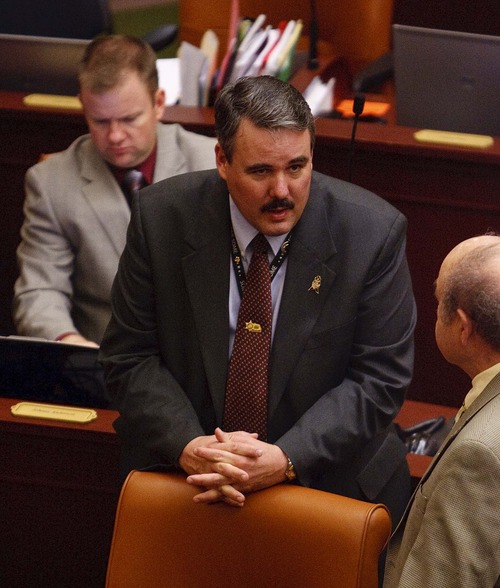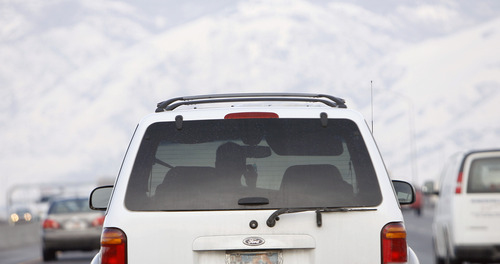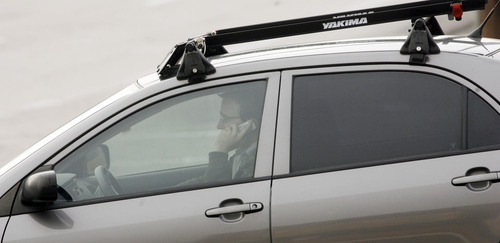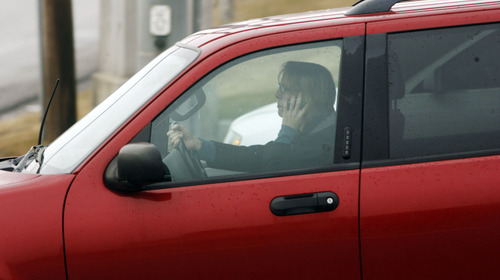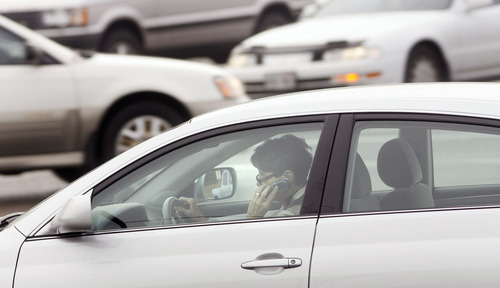This is an archived article that was published on sltrib.com in 2013, and information in the article may be outdated. It is provided only for personal research purposes and may not be reprinted.
Despite concerns that it could lead to a cellphone ban for all drivers, a House committee Wednesday unanimously endorsed a bill to prohibit their use by motorists younger than 18 years old — for texting or calls, even with hands-free devices.
Rep. Lee Perry, R-Perry, a Highway Patrol officer who is sponsoring HB103, said he views it to be like other restrictions placed on young drivers going through graduated license procedures — including, for a time, not allowing other passengers in their car besides parents, and not permitting driving between midnight and 5 a.m.
The House Law Enforcement and Criminal Justice Committee endorsed the bill without no dissenting votes, although some members worried openly about a "slippery slope" it could create for banning cellphone use by all drivers — and warned they may vote against it on the House floor.
Similar bills have failed to pass for the past three years, also amid arguments that it may hinder personal freedom or be an unwise attempt to legislate good judgment.
"It's a best practice for teenagers to learn," Perry said. Because it allows a fine of only $50 that creates no points on driving records, he added, "It is more about education than enforcement."
Elissa Schee, cqof Cottonwood Heights, held up a picture of her 13-year-old daughter who was killed in Florida by a driver distracted by using a cellphone. She said the bill "is a step in the right direction, teaching kids that if you don't ever get into this habit, it won't be a hard habit to break when you are of age."
But Jackie Warren, of Cache County, argued it should be up to parents to teach young drivers the dangers of using cellphones instead of putting it in law. "What's next? Take away the radio?" she asked, adding she would be "failing as a parent" if she did not teach her children not to use cellphones while driving.
But Rep. Paul Ray, R-Clearfield, countered that impacts of reckless driving go beyond a young driver's family.
"What about my kids on the road being harmed by people who aren't responsible?"
Connor Boyack, president of the Libertas Institute, said the bill would be an "imposition far and above graduated licensing," and move in the direction of a cellphone ban for all drivers. He suggested at least allowing use of hands-free devices.
But Perry wouldn't go along with that change.
"According to cell-phone studies at the University of Utah, drivers who talk on handheld or hands-free cell phones are just as impaired as drunk drivers," Perry said.
With that, Rep. Edward Redd, R-Logan, said to bill critics, "I'm really concerned that we tend to ignore science in hiding behind the bastion of liberty."
He later apologized for being too passionate, saying that as an assistant medical examiner he has had to perform too many autopsies on victims of distracted drivers.
Boyack responded to Redd by saying many scientific studies also point to lack of restrictions on firearms being responsible for deaths, but the Utah Legislature still opposes gun control.
Rep. Curt Oda, R-Clearfield, one of the Legislature's biggest gun enthusiasts, said such arguments make it difficult to vote for bans, but said it may be appropriate to help keep young drivers safe while they are learning. He said he is unsure whether he will vote for the bill on the House floor, but said advancing it through the committee allows an important debate to proceed.
The bill was supported by insurance companies. Rolayne Fairclough of AAA Utah noted that a 2010 study showed that while teenagers represent 8 percent of Utah drivers, they are involved in 21 percent of all crashes.


